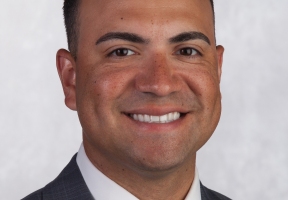

By: Andrés Baltazar, Northwestern Mutual Financial Advisor, Growth & Development Director
Strategies for keeping your finances in order in times of uncertainty
If you’re facing heightened levels of uncertainty and stress in light of the coronavirus outbreak, know you’re not alone. This ever-evolving situation is impacting our daily lives in many ways, both personally as well as financially. Even the most financially prepared cannot completely avoid the effects of a global scenario like the one we’re experiencing today. With so many factors out of our control, the question to ask yourself is, what are the steps I can take?
1. Revisit your budget. If you’re one of the many whose income has been affected by the closing of businesses or loss of wages, take some time to examine your monthly budget to identify where you can cut expenses (including deferring additional debt payments where you have been repaying more than the minimum).
After reviewing, rebuild your budget around your emergency savings, while also reevaluating any lines of credit you have open. Understanding your full financial picture for the short-term is an important first step in making sound financial decisions in the coming weeks.
2. Stay in the market. When it comes to investments, many people are asking, should I get out when the market drops? In most cases, the answer is, probably not. Markets rise and fall over time, and a strong financial plan accounts for these fluctuations. Leaving your investments where they are can help to keep your long-term financial goals on track through the unique financial growth that comes with investing.
3. Lean on diverse income sources. Sources of income including Social Security, pensions, annuities, cash value life insurance and cash reserves are assets (especially for those in or nearing retirement) to lean on during times of economic uncertainty. Unlike investments, these are largely unaffected by what is happening in the market. If you are in need of an additional source of income, rather than selling your stock, consider accessing cash value in a whole life insurance policy, or using your cash reserve.
In this challenging time, take comfort in knowing that you have options. But, as every person’s financial situation is different, consider having a discussion with a financial advisor to help ensure you’re making the decisions that are right for you. Emotional times like these are where an advisor can provide support by offering an objective view of your plan, helping to keep your finances in order for both the short- and long-run. To contact Andrés Baltazar, please email him at andres.baltazar@nm.com, or visit his website at http://www.gbaltazar.com/.








